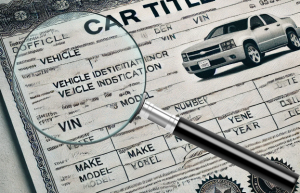Why Lien Check Matters and How to Resolve a Used Car Lien

When you’re in the market for a used vehicle in Canada, there’s one important detail you shouldn’t overlook: car liens. These financial encumbrances sound complicated, but they’re essentially legal claims against the vehicle, held by lenders until debts are paid off. Think of them as a security measure for loans used to buy the car. Understanding car liens is key for buyers to grasp their impact and handle them confidently.
Understanding Car Liens
In Canada, a car lien is a legal claim that the owner grants to another party on a vehicle which serves as collateral for a debt owed by the owner. It grants the creditor the right to repossess the car if the debt is not repaid according to the agreed-upon terms. Typically, liens are placed on vehicles when they are financed or leased, and they serve to protect the interests of the lender until the debt is fully paid off. Once the debt is satisfied, the lien is removed, and the car owner obtains a clear title to the vehicle. Liens can also be placed on vehicles for unpaid mechanic’s bills, storage fees, or other outstanding debts related to the vehicle.
Why Run a Car Lien Check?
Checking for a lien before buying a used car is a critical step in the purchasing process for several reasons:
- Financial Responsibility: By purchasing a vehicle with an outstanding lien, buyers may become responsible for any unpaid debts associated with it. If not addressed, this could lead to unforeseen financial burdens and legal complications.
- Risk of Repossession: If the previous owner defaults on their payments and the lienholder decides to repossess the vehicle, the new owner may lose both the car and any money invested in it. Running a lien check helps mitigate this risk by uncovering any existing liens before the purchase is finalized.
- Peace of Mind: Knowing that the vehicle is free of liens provides buyers with peace of mind, allowing them to proceed with the purchase confidently. It eliminates the uncertainty and potential legal issues that may arise from undisclosed liens.
- Negotiation Power: If a lien is discovered during the check, buyers can use this information as leverage in negotiations with the seller. They may request the seller to settle the lien before proceeding with the sale or negotiate a lower purchase price to account for the lien amount.
- Legal Compliance: Running a lien check ensures that buyers comply with legal requirements and protect their rights as consumers. It helps prevent potential disputes and ensures a smooth transfer of ownership without any encumbrances.
In summary, running a lien check can help buyers make informed decisions and avoid potential pitfalls in the car buying process. It can also help a car owner selling a used car boost buyers’ confidence.
Tips: Removing a Lien on a Used Car
If a lien is discovered on a vehicle, steps must be taken to clear the lien. This may involve requesting the current owner to pay off the lien before transferring ownership or contacting the seller and lender post-purchase for resolution. Resolving this issue ensures a smooth transaction and avoids any legal complications.
Here are some tips:
- Clarify the Lien Status: Understand why there’s a lien hold on the car and obtain details about the lienholder.
- Contact the Lienholder: Reach out to the lienholder to negotiate a payoff amount and understand the necessary steps to resolve the lien.
- Negotiate and Pay Off: Negotiate with the lienholder to settle the debt, ensuring proper documentation of payments made.
- Obtain Lien Release: Request a lien release or satisfaction letter from the lienholder after paying off the lien.
- Update Title and Registration: Submit the lien release to the DMV to update the car’s title and remove the lien hold.
- Verify Title Transfer: Confirm that the title reflects the updated information and your ownership status.
- Ensure Legal Compliance: Make sure all steps comply with state laws and regulations governing lien releases and title transfers.
- Document Everything: Keep detailed records of communications, payments, and documents exchanged throughout the process.
How Can I Check for Liens?
To mitigate these risks, it’s crucial to conduct a lien check before finalizing the purchase of a used vehicle. This involves researching the vehicle’s history to determine if any liens are registered against it. By performing this check upfront, buyers can avoid potential headaches down the road. Checking lien records can be done quickly by running a vehicle history report. Enter the car’s VIN or vehicle identification number below to get started.
